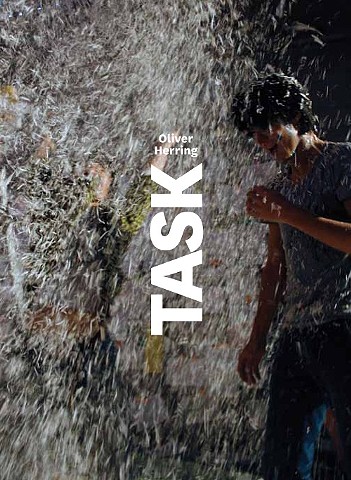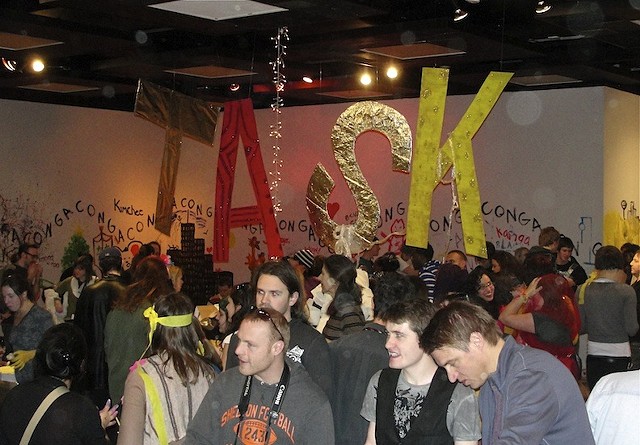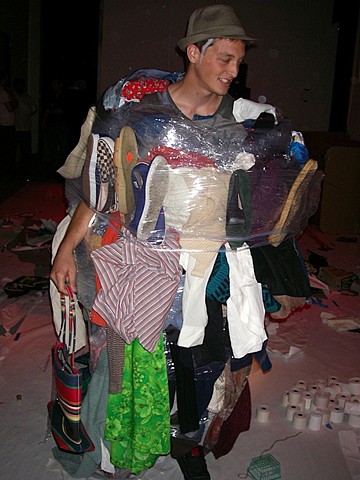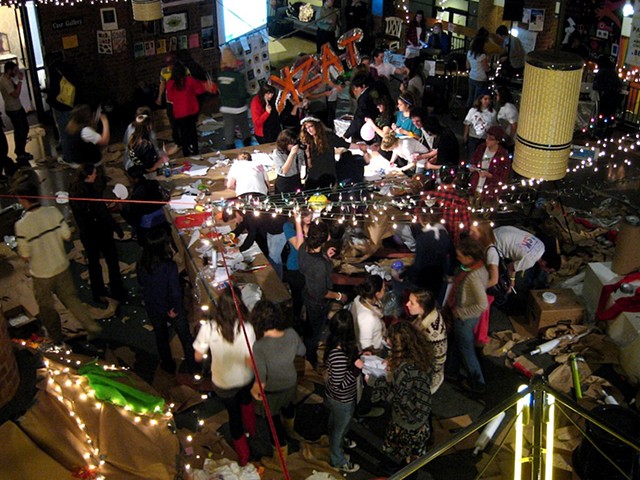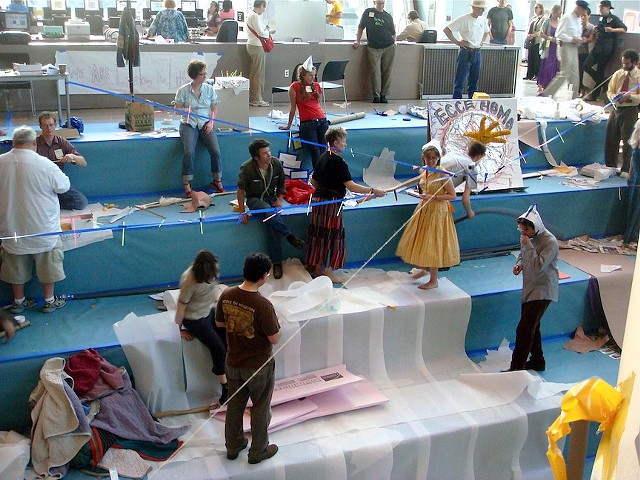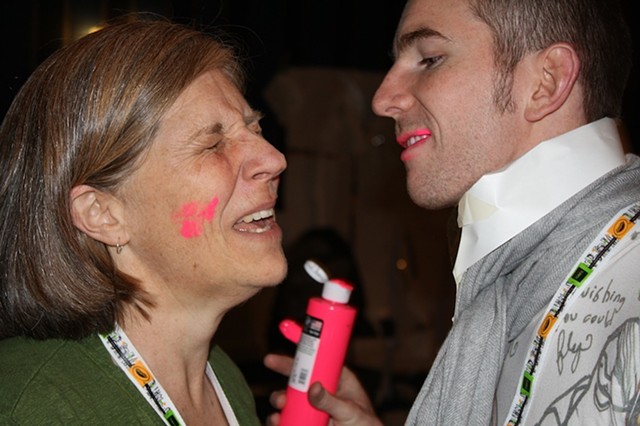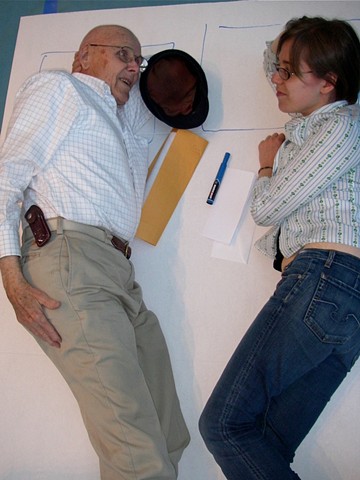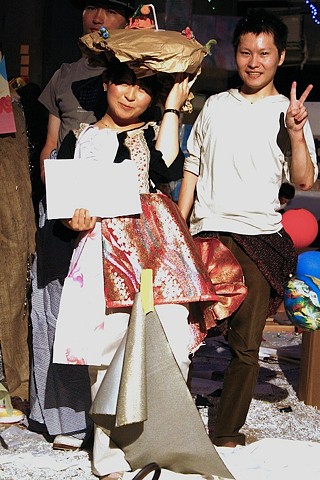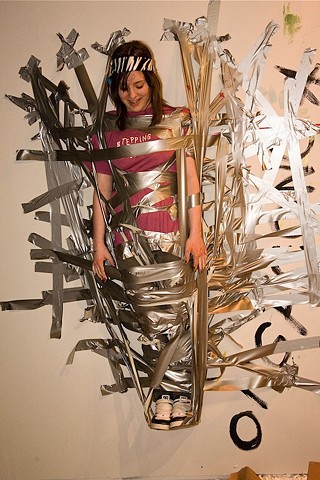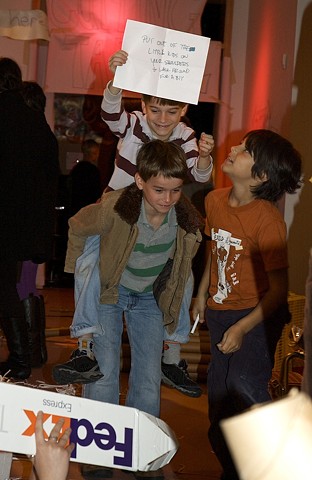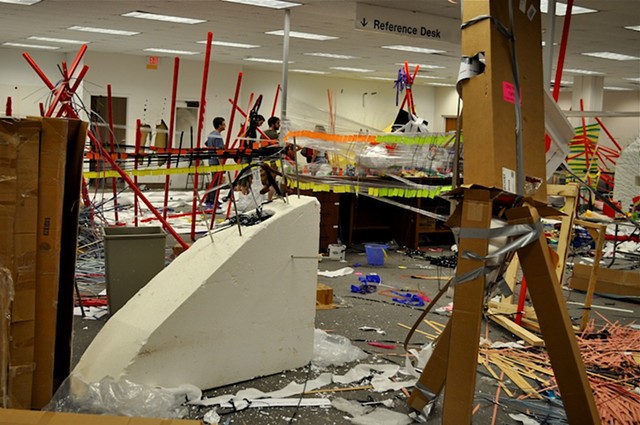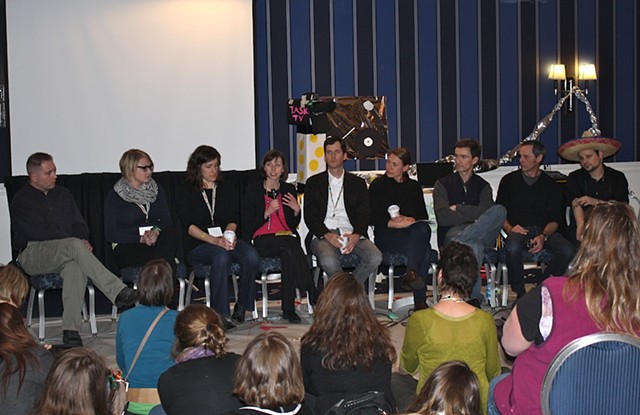TASK
TASK is a piece of art but also a simple structure that can be applied to many situations. One version of TASK can be a planned, more formal set-up with an application process and a pre-determined number of selected participants (TASK Events). Another version of TASK has a more open structure with few limitations of size or divisions between viewers and participants (TASK Parties). A third is tailored for use in classrooms (TASK Workshops).
All TASKs rely on the same basic infrastructure: a designated area, a variety of materials, and the participation of people who agree to follow two simple instructions. Those instructions are to write down a task on a piece of paper and add it to a designated “TASK pool,” then to pull a task from that pool and interpret it any which way he or she wants, using whatever or whoever is around. When a task is completed, a participant writes a new task, pulls a new task, and so on.
TASK’s open-ended, participatory structure creates almost unlimited opportunities for a group of people to interact with one another and their environment. TASK's flow and momentum depends on the tasks written and interpreted by its participants. In theory anything becomes possible. The continuous conception and interpretation of tasks is both chaotic and purpose driven. It is a complex, ever shifting environment of people who connect with one another through what and who is around them. It is also a platform for people to express and test their own ideas in an environment without failure and success (TASK always is what it is) or any other preconceptions of how an idea, a material or another person should be engaged.
For more info on TASK:
oliverherringtask.wordpress.com
Oliver Herring TASK
Published by Illinois State University
179 images, 4 essays, texts and commentary.
to order:
Oliver Herring: TASK
